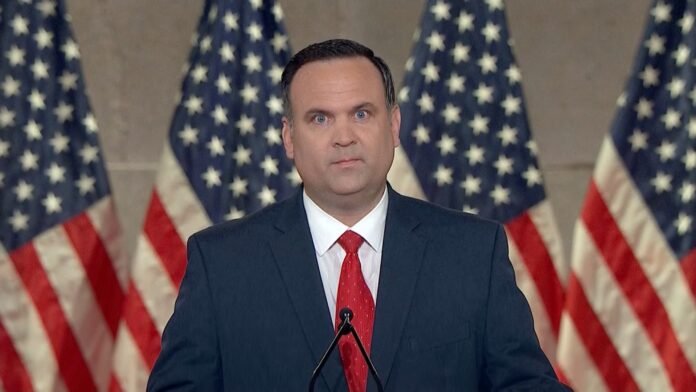President Donald Trump elevated longtime aide Dan Scavino to lead the White House Presidential Personnel Office, a move that underscores the administration’s focus on loyalty and staffing control. With Scavino rises fast, his appointment signals a shift in how Trump plans to manage personnel across his governing apparatus.
Trump publicly announced the decision via a social-media post earlier Sunday. In it, he explained that Scavino will replace Sergio Gor, who, in turn, has been named the new U.S. ambassador to India. Furthermore, Trump emphasized that the personnel office holds broad responsibility over hiring and vetting federal appointees, highlighting its critical role in shaping the administration.
Scavino already serves as Deputy Chief of Staff, a position he has held since January 2025. Consequently, by naming him to the personnel post, Trump consolidates significant personnel power in someone he trusts deeply. Moreover, Scavino has longstanding ties to Trump, stretching back years through both campaign and White House roles.
Under normal circumstances, the Presidential Personnel Office vets candidates, checks qualifications, and ensures alignment with administration goals. However, with Scavino rises fast, the new leadership may shift criteria toward ideological or personal loyalty. As a result, political watchers expect the vetting process to intensify, potentially altering how appointments are evaluated and approved.
Sergio Gor led the personnel office before this change. He now shifts into the foreign affairs domain as ambassador. Gor had overseen many staffing decisions during Trump’s second transition period. His move opens space for a more centralized personnel approach under Scavino.
Inside the White House, reactions range from approval to concern. Supporters argue this streamlines decision-making and ensures consistency. Critics warn of power concentration and weaker internal checks on loyalty-based appointments. Some former officials emphasize the need for balance between competence and fidelity.
Scavino’s past roles included oversight of social media and communications during Trump’s prior administration. He has often served as a close adviser and gatekeeper. His rise to personnel chief follows a trajectory from behind-the-scenes influence to formal staffing power.
Analysts say this is a critical moment. Staffing shapes policy execution. If Scavino imposes strict ideological filters, the administration may grow more insular. Yet, Trump might argue that only trusted allies can fulfill his agenda.
Going forward, observers will monitor whom Scavino promotes or demotes. They will also watch how Senate confirmation hearings review personnel picks. Agency morale, talent retention, and administrative efficiency may all test his approach.
Ultimately, Scavino’s ascent changes the internal architecture of Trump’s White House. His influence may drive how responsive or rigid the administration becomes. For now, the phrase Scavino rises fast sums up the speed and significance of his move.
For more political updates, visit DC Brief.


